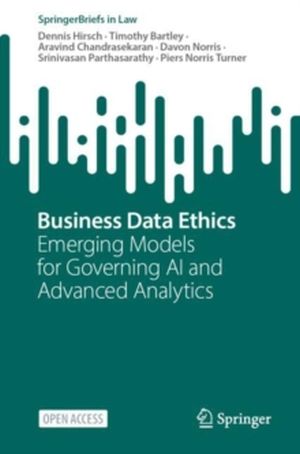
This open access book explains how leading business organizations attempt to achieve the responsible and ethical use of artificial intelligence (AI) and other advanced information technologies.
These technologies can produce tremendous insights and benefits. But they can also invade privacy, perpetuate bias, and otherwise injure people and society.
To use these technologies successfully, organizations need to implement them responsibly and ethically. The question is: how to do this? Data ethics management, and this book, provide some answers.
The authors interviewed and surveyed data ethics managers at leading companies. They asked why these experts see data ethics as important and how they seek to achieve it. This book conveys the results of that research on a concise, accessible way. Much of the existing writing on data and AI ethics focuses either on macro-level ethical principles, or on micro-level product design and tooling.
The interviews showed that companies need a third component: data ethics management. This third element consists of the management structures, processes, training and substantive benchmarks that companies use to operationalize their high-level ethical principles and to guide and hold accountable their developers.
Data ethics management is the connective tissue makes ethical principles real. It is the focus of this book. This book should be of use to organizations that wish to improve their own data ethics management efforts, legislators and policymakers who hope to build on existing management practices, scholars who study beyond compliance business behavior, and members of the public who want to understand better the threats that AI poses and how to reduce them.